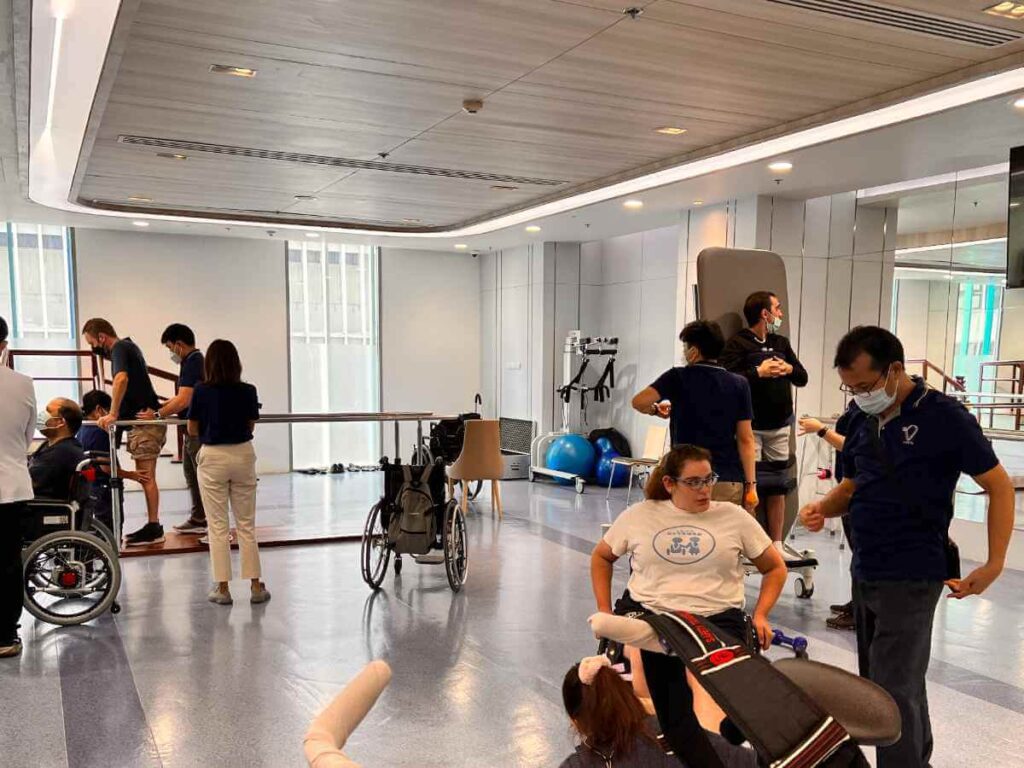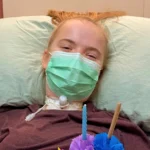After a spinal cord injury physiotherapy is one of the most important forms of the treatment a patient can receive. Taking part in a physical therapy program in the early stages after injury is essential in order to reduce the possibility of further complications after a spinal cord injury. Being in good physical condition also allows the patient to have the opportunity of being involved in new treatment. There are emerging regenerative and neuromodulatory treatments which can help patients improve motor, sensory and autonomic functions, but these can only be taken advantage of if the body has been kept in good condition.
There is no total cure for SCI and specialist spinal cord injury physiotherapy and occupational therapy have been the primary forms of treatment. However, in the last decade, medical technology has moved forward and continues to do so. One of the breakthrough treatments is epidural stimulation. Whilst epidural stimulation is not a cure, with patients still living with physical impairment, it is a major step forward, offering patients the opportunity to regain some function, increase independence and have an improved quality of life. When combined with our specialist spinal cord injury physiotherapy, mobility improvements can be significant.
There is no total cure for SCI and specialist spinal cord injury physiotherapy and occupational therapy have been the primary forms of treatment. However, in the last decade, medical technology has moved forward and continues to do so. One of the breakthrough treatments is epidural stimulation. Whilst epidural stimulation is not a cure, with patients still living with physical impairment, it is a major step forward, offering patients the opportunity to regain some function, increase independence and have an improved quality of life. When combined with our specialist spinal cord injury physiotherapy, mobility improvements can be significant.
What Is Epidural Stimulation & How Does Spinal Cord Injury Physiotherapy Work With It?
Epidural stimulation was first used as an alternative treatment for neuropathic pain, a condition which negatively affects quality of life for patients with acquired neurological conditions. It presented an opportunity for patients to receive some respite from the pain, or at least controlling or decreasing it. In the last decade however, its use as a spinal cord injury treatment was discovered and has been honed by teams such as the Verita Neuro medical board, who developed a specialist treatment protocol.

Despite the great benefits of this innovative treatment, one essential eligibility factor is the patient’s ability to be an active patient. Various factors after an SCI, such as injury evolution, patient's age, presence of pressure ulcers, spasticity etc. must be reviewed before the epidural stimulator can be implanted. A healthy body is vital to allow the patient to be involved in the 6 week physical therapy program which follows the epidural stimulation surgery. Physiotherapy is also massively important to the patient’s general wellbeing, as well as:
Following the epidural stimulation surgery, a patient rests for 48-72 hrs, allowing the body to recover. The physiotherapy part of the epidural stimulation treatment involves 5 hours of activity a day, challenging both mind and body. Patients spend 4 hours having the stimulator mapped to their body, which requires their energy and effort in order for results to be delivered. Then they undergo an hour of physical therapy to make sure that the programs are helping.
- Reducing the risk of deep vein thrombosis
- Reducing episodes of orthostatic hypotension
- Decreasing risk of osteopenia/osteoporosis.
Following the epidural stimulation surgery, a patient rests for 48-72 hrs, allowing the body to recover. The physiotherapy part of the epidural stimulation treatment involves 5 hours of activity a day, challenging both mind and body. Patients spend 4 hours having the stimulator mapped to their body, which requires their energy and effort in order for results to be delivered. Then they undergo an hour of physical therapy to make sure that the programs are helping.

The potential outcomes of epidural stimulation are hugely encouraging for patients, as well as their medical doctors and physiotherapists! However, it is essential that patients are involved in this complete physical therapy and rehabilitation process. Aside from the more obvious benefits, such as increased mobility, balance and pelvic control, it also impacts more subtle bodily functions such as bowel transit and pulmonary function. The benefits to mental health can also not be underestimated. Many patients experience mental health challenges following spinal cord injury and physical therapy helps to release serotonin as well as offering hope and prospects for the future.
References
- Diong J, Harvey LA, Kwah LK, Eyles J, Ling MJ, Ben M, Herbert RD. Incidence and predictors of contracture after spinal cord injury--a prospective cohort study, Spinal Cord 2012;50:579–584.
- Jia X, Kowalski RG, Sciubba DM, Geocadin RG. Critical care of traumatic spinal cord injury, J Intensive Care Med 2013;28:12–23.
- Jacobs PL, Nash MS. Exercise recommendations for individuals with spinal cord injury, Sports Med 2004;34:727–751.
- Gómara-Toldrà N, Sliwinski M, Dijkers MP. Physical therapy after spinal cord injury: a systematic review of treatments focused on participation, J Spinal Cord Med 2014;37:371–9.
- Kadykov AS, Chernikova LA, Shakhparonova NV. Rehabilitation of neurological patients, Moscow: MEDpress-inform 2008:p. 560.
- Audu ML, Nataraj R, Gartman SJ, Triolo RJ. Posture shifting after spinal cord injury using functional neuromuscular stimulation--a computer simulation study, J Biomech 2011;44:1639–1645.








